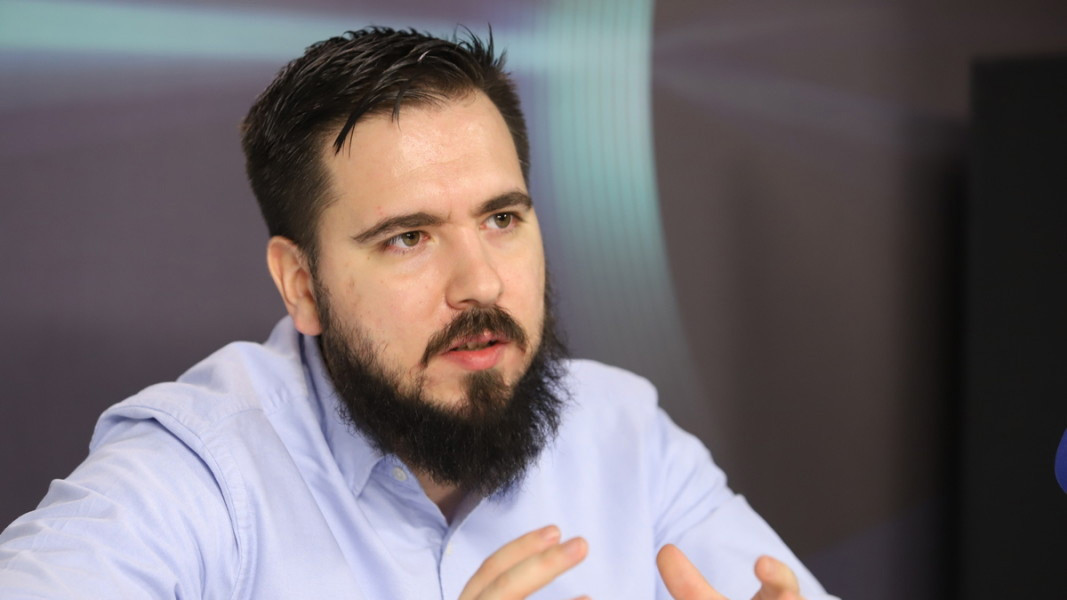It has been one month and 10 days since we have been living in the new reality of the war in Ukraine. The extent of the changes is yet to be seen, yet society will have to adapt to them as quickly as it can. Such a transformation will, without any doubt, happen, especially in light of the fact that until recently we had, and still have, another, invisible enemy to contend with – the coronavirus.
“We are still at the tail end of the pandemic but we now have to address the most complex geopolitical, economic and financial crisis the world has seen since World War 2,” macroeconomist Prof. Dimitar Ivanov said in an interview with bTV.

According to him, inflation is the most natural thing in times like these, but the war is not the only thing causing it:
“Inflation in this country started climbing before the war broke out, in 2020-2021. Even then there were blocked supplies, delay of materials, and raw material shortages,” he says.
But how long will prices climb, and are the expectations of a normalization of the prices on the market of goods and services in Bulgaria realistic?
In an interview with BNR-Plovdiv, economist Krassen Stanchev was adamant that checking the inflation processes would be a difficult thing in the course of the current year:

“By the end of the year inflation is likely to hit double-digits, and this will probably double the prices of some services. Next year things will likely calm down, and there will be no inflation of this proportion unless other factors come into play – if the war continues, if it enters a guerilla phase, or something else.”
In the next few years we shall have to resign ourselves to this and live with higher prices, because they are formed by a number of factors in the world economy, says finance expert Assoc. Prof. Victor Yotsov in an interview with the BNR’s Horizont channel:

“Energy carriers are quite a serious factor of inflationary pressure, though they are not the only one. For more than 10 years we have been living in conditions of close-to-zero interest rates, a massive increase in money supply and cash reserves in banks, and a huge increase of public debt. All of these factors lead to inflation, which can even be said to be somewhat late in coming, because the fears that the liquidity accumulated and these enormous debts that have been approved – ultimately now come in the form of inflation. That is why I do not believe that harnessing the prices of energy carriers will be enough to check inflation.”
Political analyst Alexander Dimitrov says he believes energy prices will continue their upward trend.

“We are a net exporter of energy resources, so I believe their cost will continue to go up. And as the situation continues such as it is internationally, in view of the finite fuel resource in Bulgaria, we could have very different prices in the summer if current tendencies hold.”
A change of policy by central banks could impact inflation, economist Stoyan Panchev believes. But what use would such a move be?

“The new money flow into the economy via various fiscal programmes, once it has entered the system, triggers a surge in demand,” he says in an analysis for economic.bg. “Terminating the purchase of assets programmes and raising the interest rate, however, could bring about problems with credit repayment, bankruptcies, unemployment and recession,” the economist warns.
Stoyan Panchev says he would advise the Bulgarian government to postpone the country’s entry into the Eurozone for the period after the crisis we are now going through.
Compiled by Yoan Kolev
Photos: BGNES, BNR, libraryThe draft state budget was adopted in first reading by the National Assembly on November 21. However, the planned changes in the financial framework for 2026 triggered an open clash between the ruling coalition, led by GERB party, and the opposition..
KBC Group expects the Bulgarian economy to grow slightly more next year in comparison to its previous forecasts, according to the conclusions of the Belgian financial group's latest assessments of the economies of Central and Eastern..
Foreign direct investment (FDI) in Bulgaria posted the largest net inflows from the Netherlands, Italy and Greece in the first half of 2025, the Bulgarian National Bank (BNB) said. Net FDI inflows totalled €554.9 million from the Netherlands, €325.2..

+359 2 9336 661
